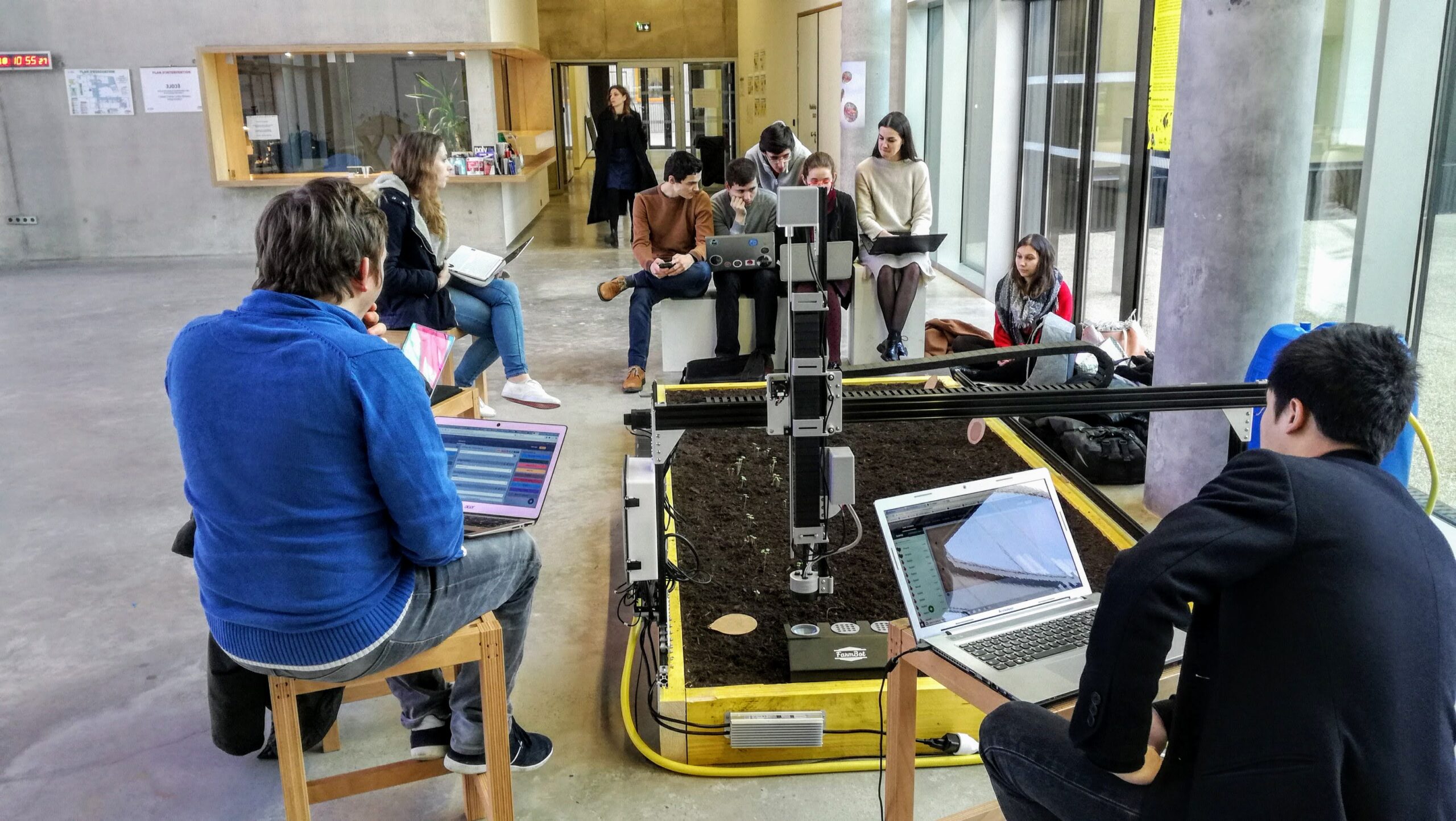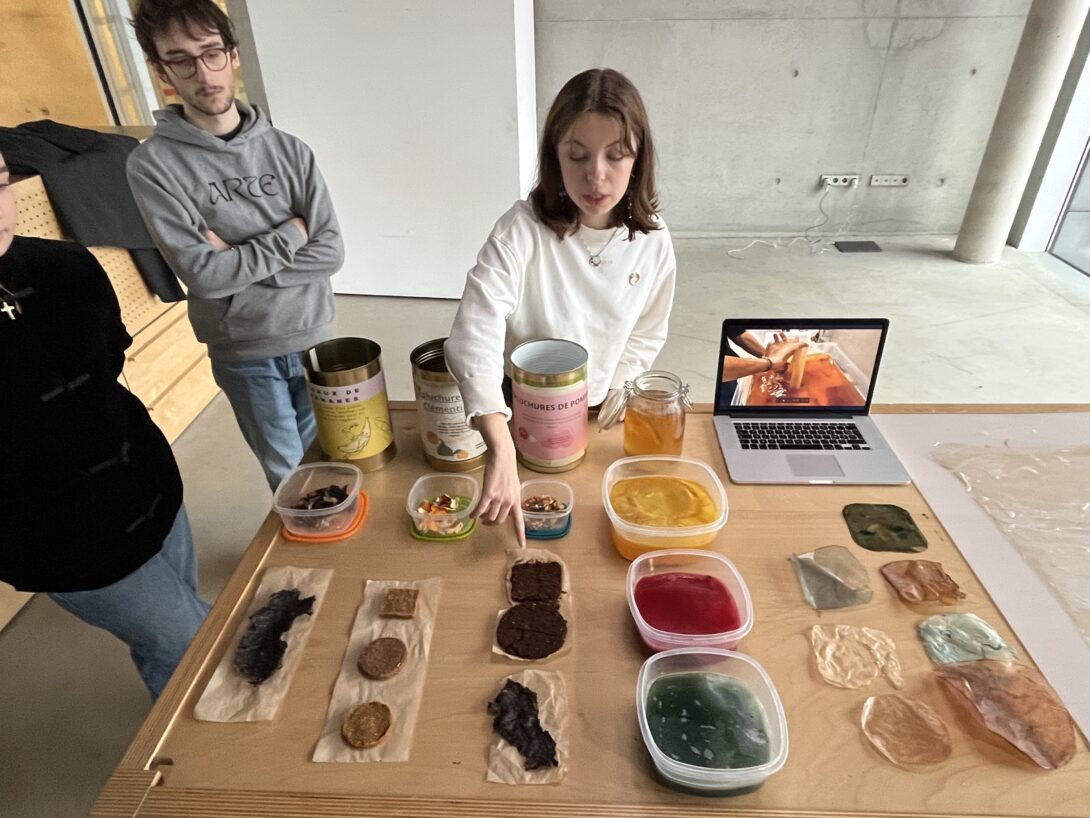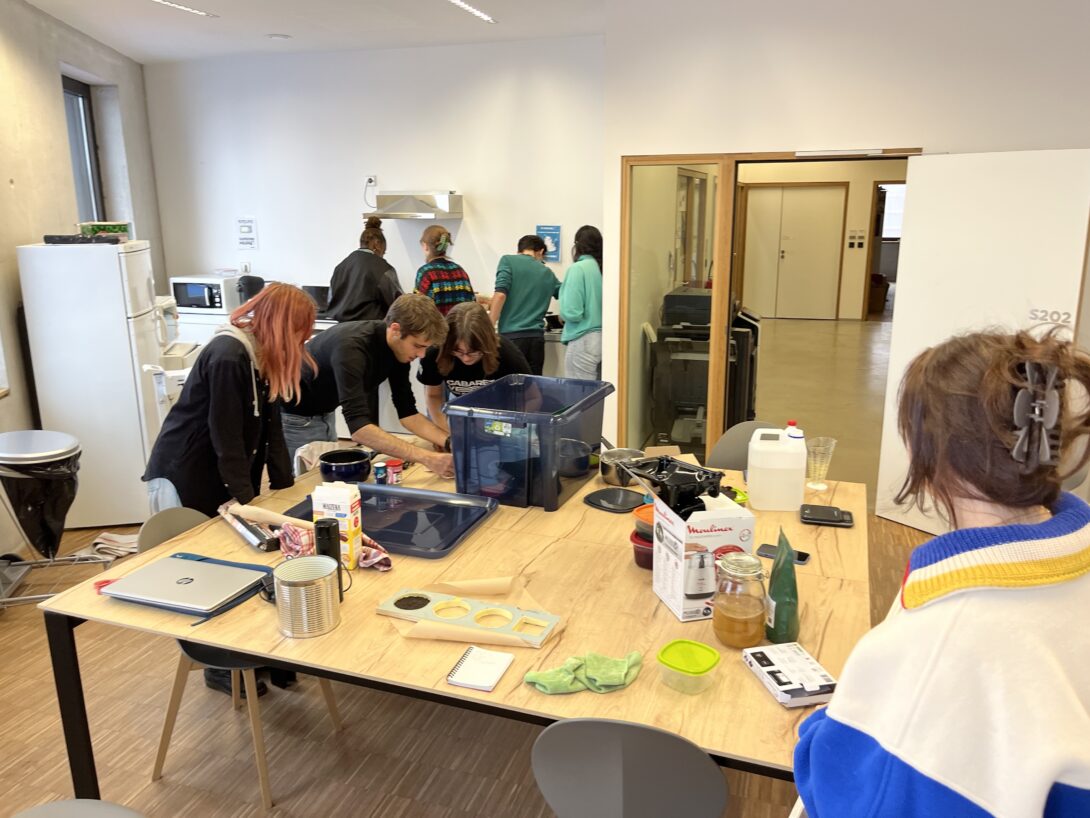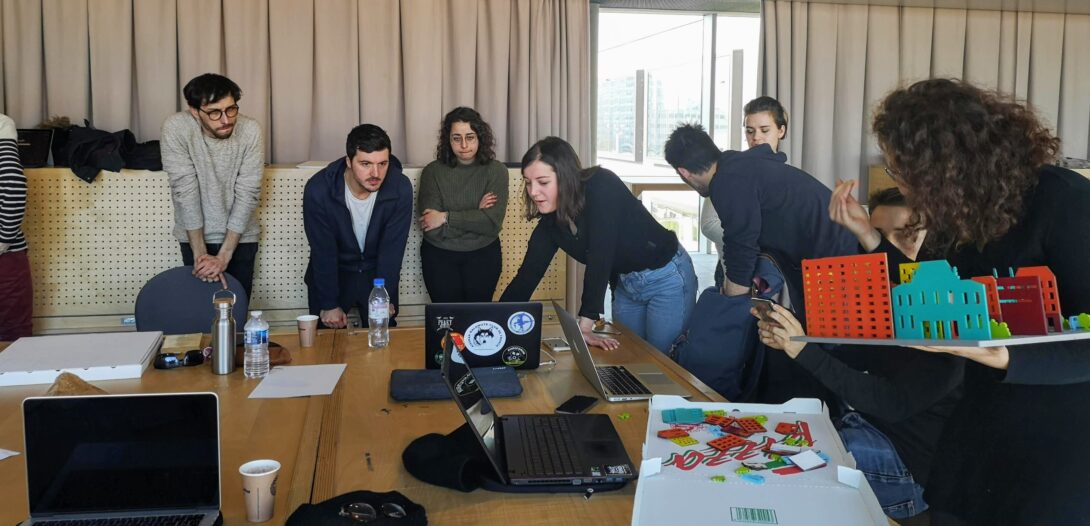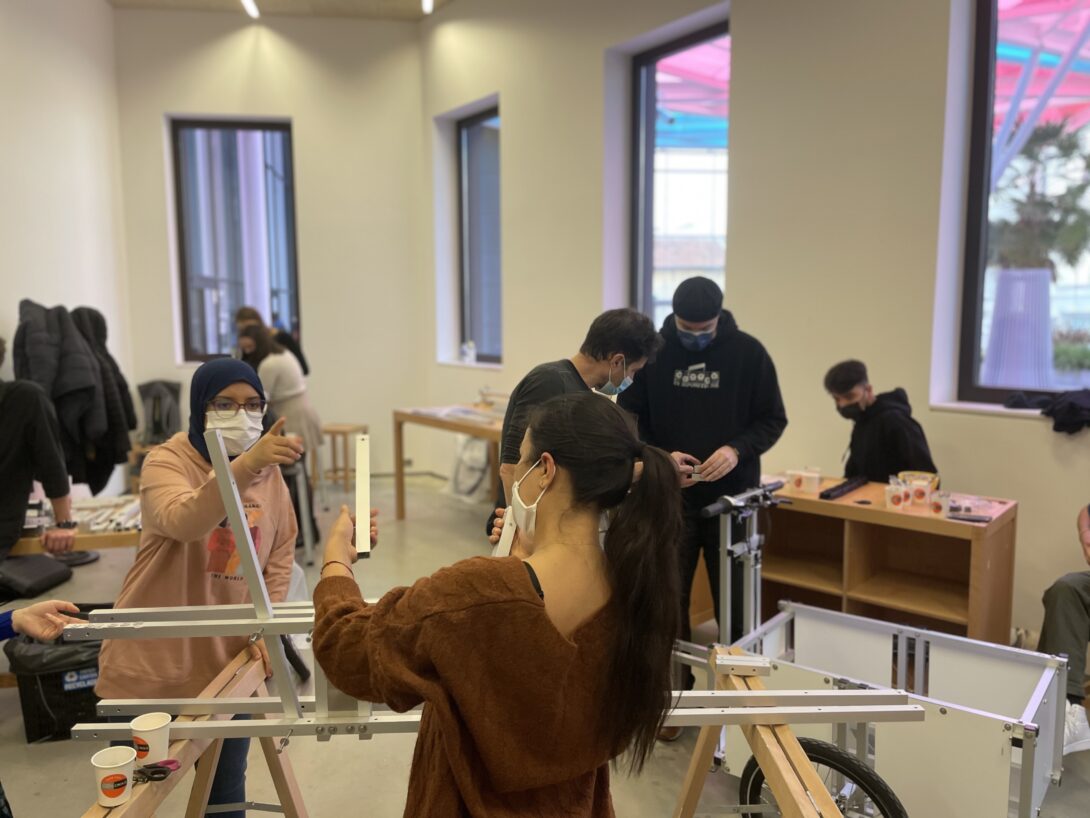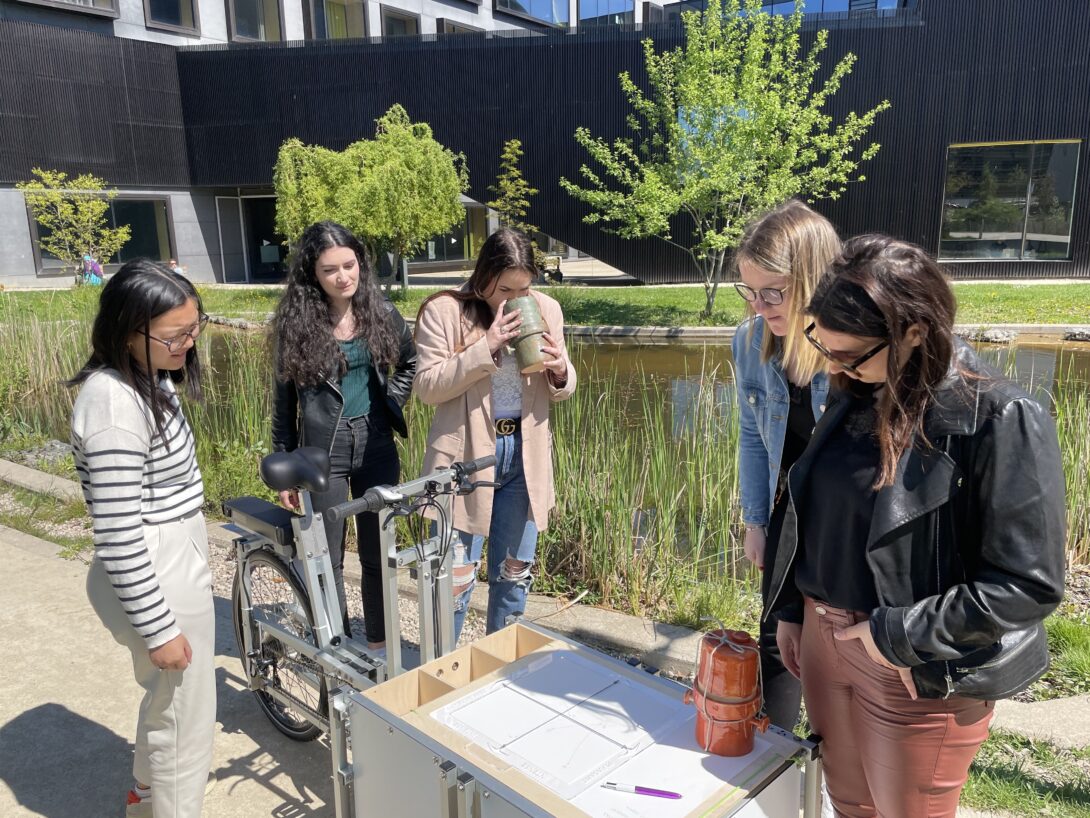Blog
When the Distributed Design method and spirit are spreading to Alliance ARTEM University
Ars Longa has been working with the Alliance ARTEM University for 7 years. This is the only campus of its kind in France, bringing together 3 national schools – the Ecole d’Ingénieur des Mines, the ICN Business School and the Ecole Nationale d’Art et de Design de Nancy – to promote a collaborative vision of innovation. Every year, Ars Longa brings together the know-how and expertise of students from these three schools in an ARTEM workshop (one of around 20 other projects) that we call Fab City Nancy. This year, the ACDC theme (Anticipation and Creation for to drive Circularity ) brings together around twenty students to explore domestic organic waste and its potential for the production of new materials.
Every year, we see Distributed Design’s vision and objectives as a powerful source of inspiration for the students and future professionals we support. Engineers, entrepreneurs and designers see our network as a powerful relay for their aspirations in a world of elusive landmarks. Thinking by doing, getting involved locally and developing a certain art of resistance to the standards imposed by industrial production.
This year, our workshop is taking a design approach to the issue of materials. Materials and products of fossil origin fundamentally threaten our health, our ecosystems and our ability to sustain life on earth. We are investigating and testing the possibility of healthy plastic materials that are not harmful to the world around us.
What if we were able to produce materials from resources that were available in the city? For billions of years, nature has managed to create vast quantities of materials without landfill or waste. It’s time we took stock of this fact. We are betting that the next generation of materials will produce no waste, will be regenerative and circular, and that we will rediscover a sustainable relationship with the objects that surround them.
Drawing on the approaches, methods and monitoring we use in our Distributed design activities, our ARTEM Workshop is organised around three pedagogical springs :
- Inspire by discovering a form of fiction-reality design through a journey to a world of materials that makes sense again. Students are invited to transport us to the year 2044, where we are much less dependent on fossil fuels. New tools and materials have emerged that enable us to make the products we need, while enriching rather than harming the world around us;
- Experiment by testing the production and creation of new materials from local resources derived from reuse;
- Activate by identifying local partners linked to the theme of the Workshop and involving them directly or indirectly in the Workshop’s approach. In this way, the projects carried out become part of an economic and social reality.
The main skills we want them to acquire should enable them to :
- Gain a better understanding of the ecosystem of a Manufacturing City, as well as the issues surrounding the circular economy;
- Acquire the skills to propose opportunities to a city that wants to develop a better relationship between production and consumption;
- Develop the ability to test and prototype materials and forms: experiment by designing and producing materials, forms and concepts;
- Build a professional network: discover the development centres of the city of manufacture (companies, local authorities in France and/or abroad).
Drawing on the methods and tools that we have been developing over almost 6 years of Distributed Design collaboration, including the systematic use of our tool – Re-Label – we try to guide students towards self-assessment of their learning, skills and collaborative efforts: listening and critical thinking; assertiveness; commitment; creativity; cooperation; the ability to mobilise resources and value the project undertaken; attendance and the project completed in its entirety. Initiative-taking, the ability to collaborate using a collaborative and agile approach and the creativity of the results are all taken into account.
The projects were presented on Friday 5 April 2024 in the form of a wunderkammer (a cabinet of curiosities, objects, etc.) based on the experiments carried out over the year by the 4 groups of students who made up this 2023-2024 year.
